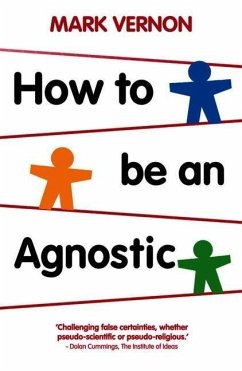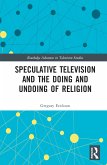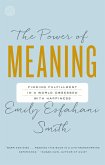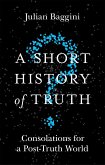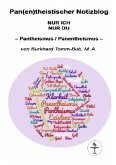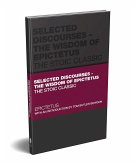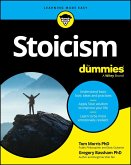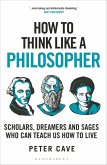The authentic spiritual quest is marked not by certainties but by questions and doubt. How To Be An Agnostic explores the wonder of science, the ups and downs of being 'spiritual but not religious', the insights of ancient philosophy, and God the biggest question.
Mark Vernon was an Anglican priest, left a conviction atheist, and now finds himself to be a committed, searching agnostic. Part personal story, part spiritual search, this journey through physics and philosophy concludes that the contemporary lust for certainty is demeaning of our humanity. We live in a time of spiritual crisis, but the key to wisdom as Socrates, the great theologians and the best scientists know is embracing the limits of our knowledge.
This much expanded edition was previously published as After Atheism, and includes new chapters looking at mindfulness meditation, pic'n'mix religion, quantum spirituality, the probability of God and why Stephen Hawking is wrong about nothing.
Part personal quest, part search through science and theology, part discovery of Socrates, this book asks what a spiritual person can make of God and religion today.
Mark Vernon was an Anglican priest, left a conviction atheist, and now finds himself to be a committed, searching agnostic. Part personal story, part spiritual search, this journey through physics and philosophy concludes that the contemporary lust for certainty is demeaning of our humanity. We live in a time of spiritual crisis, but the key to wisdom as Socrates, the great theologians and the best scientists know is embracing the limits of our knowledge.
This much expanded edition was previously published as After Atheism, and includes new chapters looking at mindfulness meditation, pic'n'mix religion, quantum spirituality, the probability of God and why Stephen Hawking is wrong about nothing.
Part personal quest, part search through science and theology, part discovery of Socrates, this book asks what a spiritual person can make of God and religion today.
'Mark Vernon - a former Anglican priest who left the church only to find dogmatic unbelief just as unsatisfying - shows how being an agnostic can be a modern version of the spiritual life. If you are discontented with simple-minded atheism and literal-minded faith, this is the book for you.'- John Gray, author of The Immortalization Commisssion: Science and the Strange Quest to Cheat Death
'This lucid and eminently readable book brings home to the reader the importance of recognising the limits of our knowledge. At a time when public and private discourse is often characterised by an aggressive and unrealistic certainty, it is an important contribution.'- Karen Armstrong, one of the world's leading commentators on religious affairs
'As ever, Mark Vernon writes with sharp insight and a generous understanding of how humans search and create meanings to sustain their lives. He is, quite simply, one of the few writers in England today who really understands the impulse to religious belief and how a faithless age can respond. There are few others I trust to bring such intelligence and sympathy to these issues.' - Madeleine Bunting, The Guardian
'Between religion and atheism is a third way into which Vernon takes his readers. It is a challenging, cogently argued perspective.' - Good Book Guide
'For twenty years I have been waiting for a book that exposes the empty certainties of religious fundamentalism and its secular twin: scientific triumphalism. Mark Vernon has delivered that and much, much more.' - Mark Dowd, broadcaster and film-maker
'He defends ambiguity and undecidability with an almost Evangelical zeal. And because he writes with such a delicate blend of deft coolness on the one hand, and fervour on the other, many are likely to be both enchanted and persuaded by his apologetics. - Martyn Percy, Church Times
'The strength of the book...is in challenging false certainties, whether pseudo-scientific or pseudo-religious.' - Dolan Cummings, The Institute of Ideas
'This book is more than a well-reasoned argument for agnosticism; it is a timely reminder of the recognition of human limits, in all areas, and a suggestion that the possibility of living within the mystery that is the world can be a good thing.' - Robert L. Smith, Jr., International Journal of Public Theology
'This lucid and eminently readable book brings home to the reader the importance of recognising the limits of our knowledge. At a time when public and private discourse is often characterised by an aggressive and unrealistic certainty, it is an important contribution.'- Karen Armstrong, one of the world's leading commentators on religious affairs
'As ever, Mark Vernon writes with sharp insight and a generous understanding of how humans search and create meanings to sustain their lives. He is, quite simply, one of the few writers in England today who really understands the impulse to religious belief and how a faithless age can respond. There are few others I trust to bring such intelligence and sympathy to these issues.' - Madeleine Bunting, The Guardian
'Between religion and atheism is a third way into which Vernon takes his readers. It is a challenging, cogently argued perspective.' - Good Book Guide
'For twenty years I have been waiting for a book that exposes the empty certainties of religious fundamentalism and its secular twin: scientific triumphalism. Mark Vernon has delivered that and much, much more.' - Mark Dowd, broadcaster and film-maker
'He defends ambiguity and undecidability with an almost Evangelical zeal. And because he writes with such a delicate blend of deft coolness on the one hand, and fervour on the other, many are likely to be both enchanted and persuaded by his apologetics. - Martyn Percy, Church Times
'The strength of the book...is in challenging false certainties, whether pseudo-scientific or pseudo-religious.' - Dolan Cummings, The Institute of Ideas
'This book is more than a well-reasoned argument for agnosticism; it is a timely reminder of the recognition of human limits, in all areas, and a suggestion that the possibility of living within the mystery that is the world can be a good thing.' - Robert L. Smith, Jr., International Journal of Public Theology

